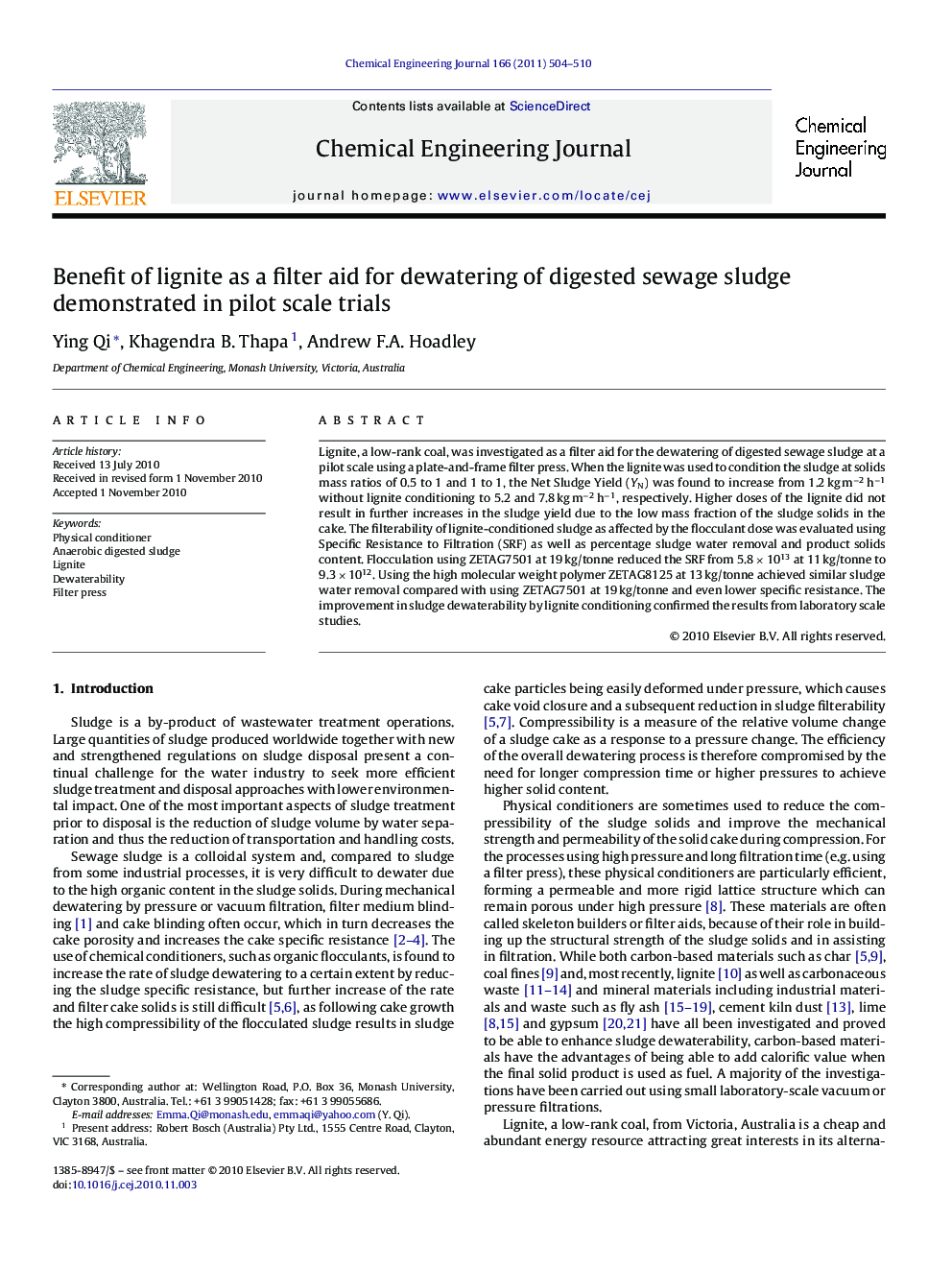| Article ID | Journal | Published Year | Pages | File Type |
|---|---|---|---|---|
| 10260841 | Chemical Engineering Journal | 2011 | 7 Pages |
Abstract
Lignite, a low-rank coal, was investigated as a filter aid for the dewatering of digested sewage sludge at a pilot scale using a plate-and-frame filter press. When the lignite was used to condition the sludge at solids mass ratios of 0.5 to 1 and 1 to 1, the Net Sludge Yield (YN) was found to increase from 1.2 kg mâ2 hâ1 without lignite conditioning to 5.2 and 7.8 kg mâ2 hâ1, respectively. Higher doses of the lignite did not result in further increases in the sludge yield due to the low mass fraction of the sludge solids in the cake. The filterability of lignite-conditioned sludge as affected by the flocculant dose was evaluated using Specific Resistance to Filtration (SRF) as well as percentage sludge water removal and product solids content. Flocculation using ZETAG7501 at 19 kg/tonne reduced the SRF from 5.8 Ã 1013 at 11 kg/tonne to 9.3 Ã 1012. Using the high molecular weight polymer ZETAG8125 at 13 kg/tonne achieved similar sludge water removal compared with using ZETAG7501 at 19 kg/tonne and even lower specific resistance. The improvement in sludge dewaterability by lignite conditioning confirmed the results from laboratory scale studies.
Related Topics
Physical Sciences and Engineering
Chemical Engineering
Chemical Engineering (General)
Authors
Ying Qi, Khagendra B. Thapa, Andrew F.A. Hoadley,
